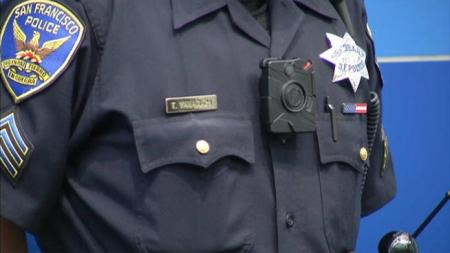 With the State Senate’s approval today of AB 748 by Assemblymember Phil Ting (D-San Francisco), California takes a big step forward in allowing greater public access to law enforcement body camera recordings. The proposal, which cleared a full house of the legislature for the first time, requires the release of video or audio within 45 days of a critical incident, unless doing so interferes with an investigation. A critical incident is defined as the discharge of a firearm or use-of-force that causes death or great bodily harm.
With the State Senate’s approval today of AB 748 by Assemblymember Phil Ting (D-San Francisco), California takes a big step forward in allowing greater public access to law enforcement body camera recordings. The proposal, which cleared a full house of the legislature for the first time, requires the release of video or audio within 45 days of a critical incident, unless doing so interferes with an investigation. A critical incident is defined as the discharge of a firearm or use-of-force that causes death or great bodily harm.
“Trust between law enforcement and the communities they protect is key to maintaining peace and safety in our neighborhoods,” said Ting. “We need the statewide standard for the disclosure of body camera footage outlined in AB 748 because greater transparency is the only way to rebuild public trust after critical incidents occur.”
The California Police Chiefs Association estimates 20% of the state’s police departments have deployed body-worn cameras on their officers, and that number is growing. Under current California law, the Public Records Act does not have clear or consistent standards regarding release of these recordings. In April, the Los Angeles Police Commission adopted a policy similar to AB 748. But other departments commonly cite “pending investigation” as a reason to withhold body camera footage, further increasing mistrust. Recordings can show whether or not an officer was in compliance with the law when critical incidents occur and help clear an officer of any perceived wrongdoing. If extra time is needed for an investigation, AB 748 also allows for 30-day delays in the release of footage.
“This is an important measure to bolster the foundation of democracy,” said Kevin Baker, Legislative Director for the ACLU of California. “Without public disclosure, the government can’t be responsive to the people. Like all other government employees, the police work for the public. They have a vital role in protecting us from crime, but that doesn’t shield them from public oversight.”
AB 748 now moves to the Assembly for a final concurrence vote before it’s sent to the Governor’s desk. The Governor has until the end of September to act. If approved, the law will take effect July 1, 2019.
Media Contact: Nannette Miranda (916) 319-2019.
# # # #